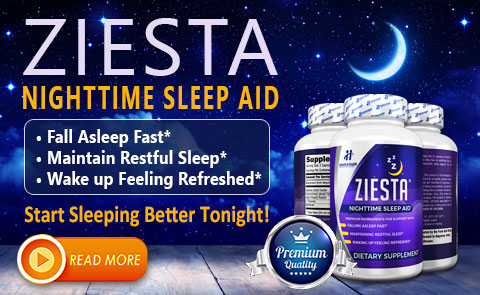 Self-care is important to your physical, mental and emotional health. That said, it can also be one of the things you neglect the most when you get busy, are overwhelmed, or simply aren’t feeling at your best. The thing is, that’s when it’s most important to take those extra steps for your wellbeing.
Self-care is important to your physical, mental and emotional health. That said, it can also be one of the things you neglect the most when you get busy, are overwhelmed, or simply aren’t feeling at your best. The thing is, that’s when it’s most important to take those extra steps for your wellbeing.
Signs You’ve Neglected Self-Care Aren’t Always Obvious
Many of us mistakenly believe that we don’t need any extra self-care because we seem to be healthy enough overall. However, your body could be sending you quite a few signs that you’re just not seeing because they’re not entirely obvious.
After all, if you catch a cold, the symptoms are quite literally as plain as the nose on your face. However, when you’re not nurturing your overall health on an everyday basis, your body might feel as though it is shouting for your attention, but you’re overlooking those signs because your focus is elsewhere.
Practicing Healthy Habits Doesn’t Have to be Complicated
A proper self-care routine doesn’t have to involve any great expense or complexity. Many of the habits most recommended by doctors don’t require any major changes or time investments. Instead, they can be as simple as a few basic tweaks to your routine here and there. They’re not difficult to adopt or to keep doing, but their benefits are considerable.
- A more active lifestyle – Even 15 minutes a day makes a measurable difference.
- A nutritious diet – Just a few tweaks here and there enhance your nourishment.
- A restful sleep – Simple habits like a set bedtime can be game changing.
- Stress control – A daily meditation – even 2 minutes long – can lower those shoulders.
- Looking ahead – Making basic changes today with tomorrow in mind is a powerful gift.
Learning to Make a Priority of Self-Care
Nobody is expecting you to live a perfect life. In fact, it’s widely believed that there isn’t one. So, trying to live your life in a perfectly healthy way is somewhat of an effort in futility. Still, this doesn’t mean you should just give up. Proper self-care can help you to feel better, look better, live healthier, and even improve your chances of living longer.
Bettering your nutrition, activity level and sleep while managing your stress doesn’t mean you need to overhaul your entire life. Instead, simply making a priority of your wellness and adjusting certain habits here and there can make all the difference.
7 Signs Your Self-Care is Due for an Upgrade
Even if you don’t have any medical issues, your body might still be sending you signs that it could use a bit of additional self-care. The following are some signs that you should be taking better care of yourself that you might not have noticed because they’re subtle and can be quite common.
1 – You Never Feel Well Rested
 The sleep you get at night is exceptionally important to all parts of your physical, mental and emotional health. If you’re not getting enough rest on a regular basis, it can start to take its toll. Among the most common signs is that you are always feeling sleepy. Maybe you’ll have a few moments during the day that you’re alert and have a bit of energy, but the rest of the time, you’re just dragging yourself through the day until you can go to bed again.
The sleep you get at night is exceptionally important to all parts of your physical, mental and emotional health. If you’re not getting enough rest on a regular basis, it can start to take its toll. Among the most common signs is that you are always feeling sleepy. Maybe you’ll have a few moments during the day that you’re alert and have a bit of energy, but the rest of the time, you’re just dragging yourself through the day until you can go to bed again.
There are many reasons for this. Sleep struggles – such as when you can’t fall asleep, or you wake up during the night – or even sleep apnea can be very disruptive to your rest. However, if you’re not sticking to a set bedtime and waking schedule that provides the minimum number of hours you need to recharge at night, your wellness will suffer.
Consider sleep a core component to your self-care. Remember, thinking that you can cut into your sleep during the week only to catch up on the weekend rarely works. After all, if you’re sacrificing 1 to 2 hours per night during the week, that would mean that you’d need to catch up on 5 to 10 extra hours of sleep on the weekend on top of the sleep you should already be getting on those nights!
Instead, practice healthy sleep hygiene as a part of your self-care. If possible, go to bed at the same time every night and get up at the same time in the morning – yes, even on weekends. Have a winding down routine for at least an hour before bedtime at night and don’t use your snooze button anymore. For the first while, a nighttime sleep aid can provide fantastic support as you build your natural sleeping and waking clock.
Check out these 10 healthy bedtime habits to help you get this part of self-care started!
2 – Brain Fog
 Feeling spacy? Careless? Forgetful? Is your memory not what it used to be? Before you blame your age or even start worrying about something more serious, ask yourself whether your self-care routine is in need of a boost.
Feeling spacy? Careless? Forgetful? Is your memory not what it used to be? Before you blame your age or even start worrying about something more serious, ask yourself whether your self-care routine is in need of a boost.
Poor nutrition, lack of regular physical activity, chronic stress and a deficiency in regular restful sleep are all top causes of brain fog. Put them together and you might have a solid explanation for the fact that you walked out the door without your phone again today…and that it probably doesn’t matter anyway because you forgot to charge it last night.
If you’ve been experiencing brain fog for a while, it doesn’t hurt to talk to your doctor to be sure there isn’t another underlying cause. That said, if you’re healthy, stepping up your self-care can also help you to start feeling “on” again during the day, when you need your alertness back.
3 – Everything Stresses You Out
 We all get overwhelmed sometimes, and it is at the times when things are toughest that our self-care can make the most positive difference. Unfortunately, when you’re feeling overwhelmed, it can be hard to prioritize a bit of “me time”, since you already feel as though every minute is full and if you can find one for yourself, you don’t feel like doing anything.
We all get overwhelmed sometimes, and it is at the times when things are toughest that our self-care can make the most positive difference. Unfortunately, when you’re feeling overwhelmed, it can be hard to prioritize a bit of “me time”, since you already feel as though every minute is full and if you can find one for yourself, you don’t feel like doing anything.
If this happens on a rare occasion, it’s unpleasant, but you can typically recover from it pretty quickly. However, if you’re constantly feeling overwhelmed and stressed out, your cortisol (stress hormone) levels are staying high on a regular basis instead of dipping back down again after the stressful event has passed.
High cortisol levels can make you feel anxious, depressed, moody, and can lower your cognitive function, meaning that it’ll be harder for you to get things done, understand instructions and might also have lowered feelings of self worth.
Chronically high stress levels – and the high cortisol levels that come with it – can also lead to an increase in inflammation and body fat. This can make weight management challenging and can lead to reduced energy, lower self-confidence and overall frustration.
If any of this sounds like you, focusing on your self-care is long overdue. Consider trying healthier snacks, adding a salad to your meals, going for a walk outside, doing a few breathing exercises, and starting a healthy sleep routine tonight.
4 – Your Muscles are Sore or Twitchy
 If you spend most of your day sitting in front of a screen like a computer or TV, it’s easy for stiffness and soreness to build up, making it uncomfortable to stand up and stretch.
If you spend most of your day sitting in front of a screen like a computer or TV, it’s easy for stiffness and soreness to build up, making it uncomfortable to stand up and stretch.
This can go a step further if you’re not eating a balanced diet, since low magnesium levels can lead to muscle spasms, particularly in your lower body. If this only happens once or twice, it’s likely not problematic. However, if it continues over time, health issues can result, including risks of abnormal heartbeats.
Overcoming sore, twitchy muscles can be simple and straightforward. Stand up and stretch every now and again. Go for a walk, do some yoga, or do something else active every day. Eat a healthy, balanced diet including foods that give you a good dose of magnesium such as bananas, pumpkin seeds and almonds.
5 – Very Dry Skin
It’s natural for skin to get dry in colder weather, so if you’ve got a bit of dryness throughout the winter, it’s not usually a cause for concern. Still, if there are patches that are particularly problematic or if your skin is particularly dry and flaky all over, it could be that there’s something else going on.
Ask yourself if you need improved self care in areas such as proper hydration and if you’ve ben including enough healthy fatty acids in your diet. Walnuts, olives, avocados and oily fish are all good sources of these fats. In terms of hydration, keep sipping your water all day long and you’ll be doing a lot better.
6 – Sudden Breakouts
Acne is widely known as a genetic and/or hormonal skin condition. However, if you’ve had relatively clear skin and suddenly find yourself dealing with clusters or eruptions of pimples, it could be a sign that you’re due for an upgrade to your self-care.
In this instance, virtually every one of the main steps to self-care can be helpful. Improving your stress levels, sleep, diet and activity level can all play a role in clearer and more comfortable skin.
7 – Tingling Hands and Feet
 Once in a while, feeling a bit of tingling in fingers, hands, toes or feet isn’t uncommon. However, when it happens regularly and is left untreated, it could lead to bigger issues. Fortunately, for most people experiencing this symptom, consuming more foods containing vitamin B12 is all that is needed to avoid complications such as anemia.
Once in a while, feeling a bit of tingling in fingers, hands, toes or feet isn’t uncommon. However, when it happens regularly and is left untreated, it could lead to bigger issues. Fortunately, for most people experiencing this symptom, consuming more foods containing vitamin B12 is all that is needed to avoid complications such as anemia.
Eggs, meat and dairy can all be incorporated into your healthy self-care routine for this reason. That said, if you’re living a vegan lifestyle, supplementation can help as all food sources of vitamin B12 are animal-based.
What Will You Do for Your Self-Care Today?
It’s time to start focusing on your self-care for better physical and mental health, and so that you can be your best for your family, friends, and even at work. What will your first improvement be?




















